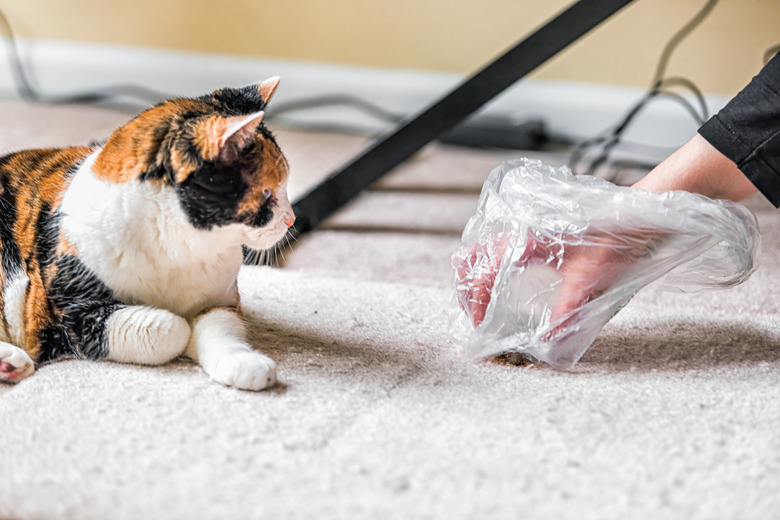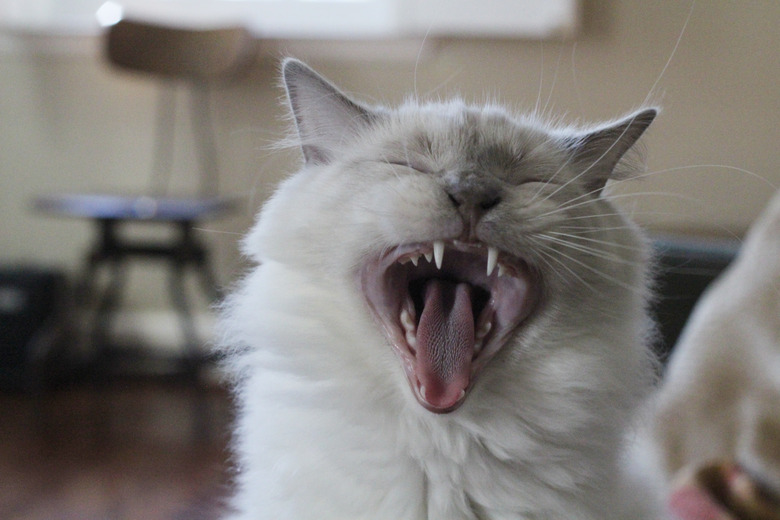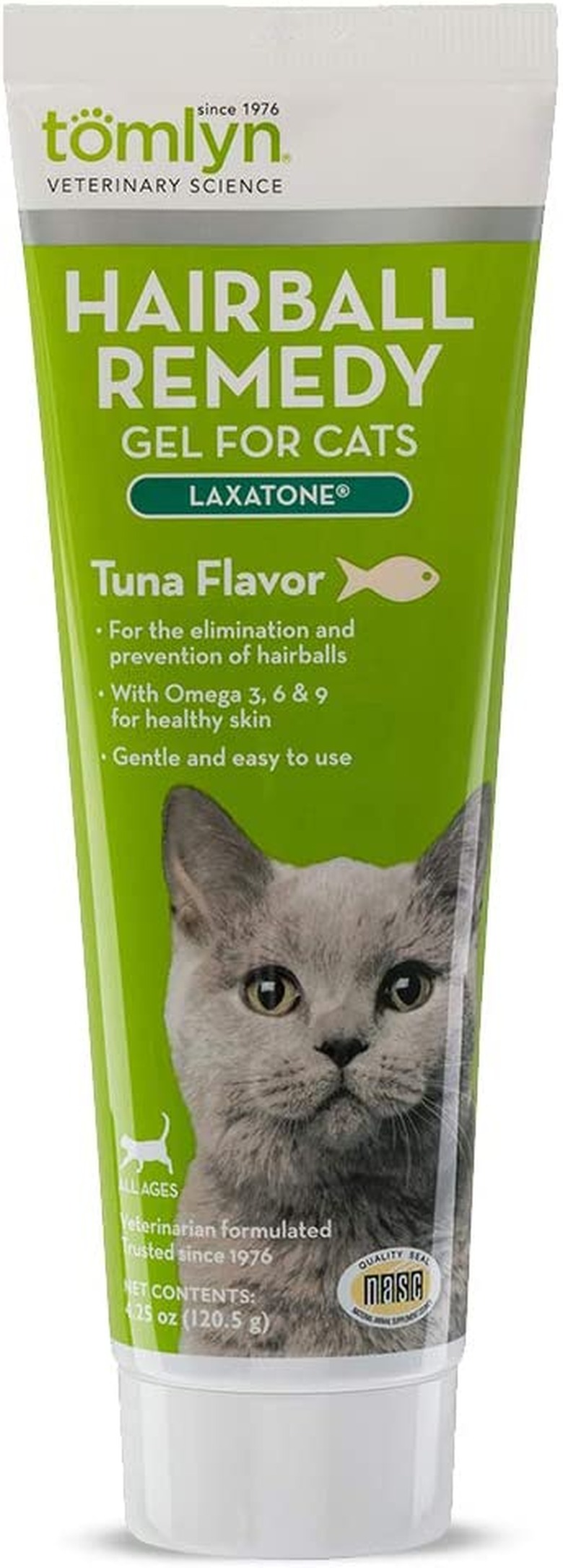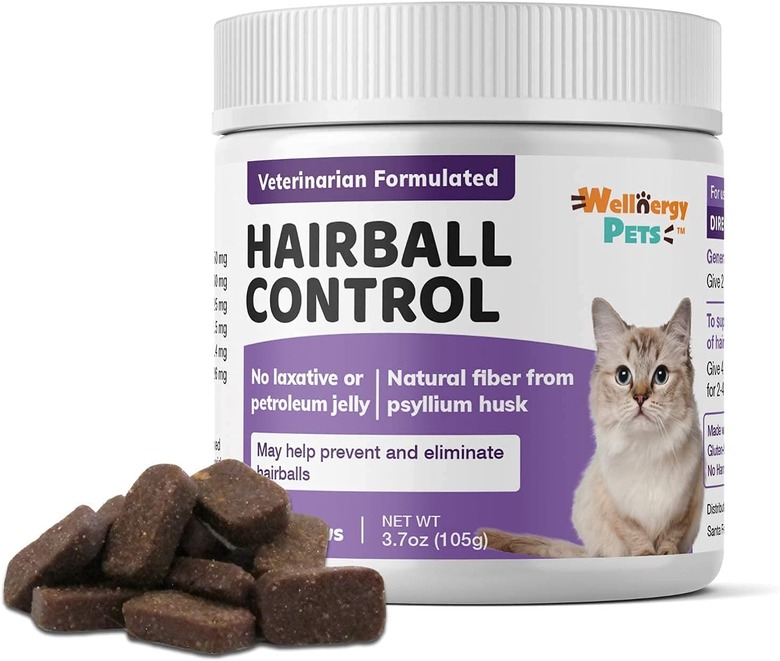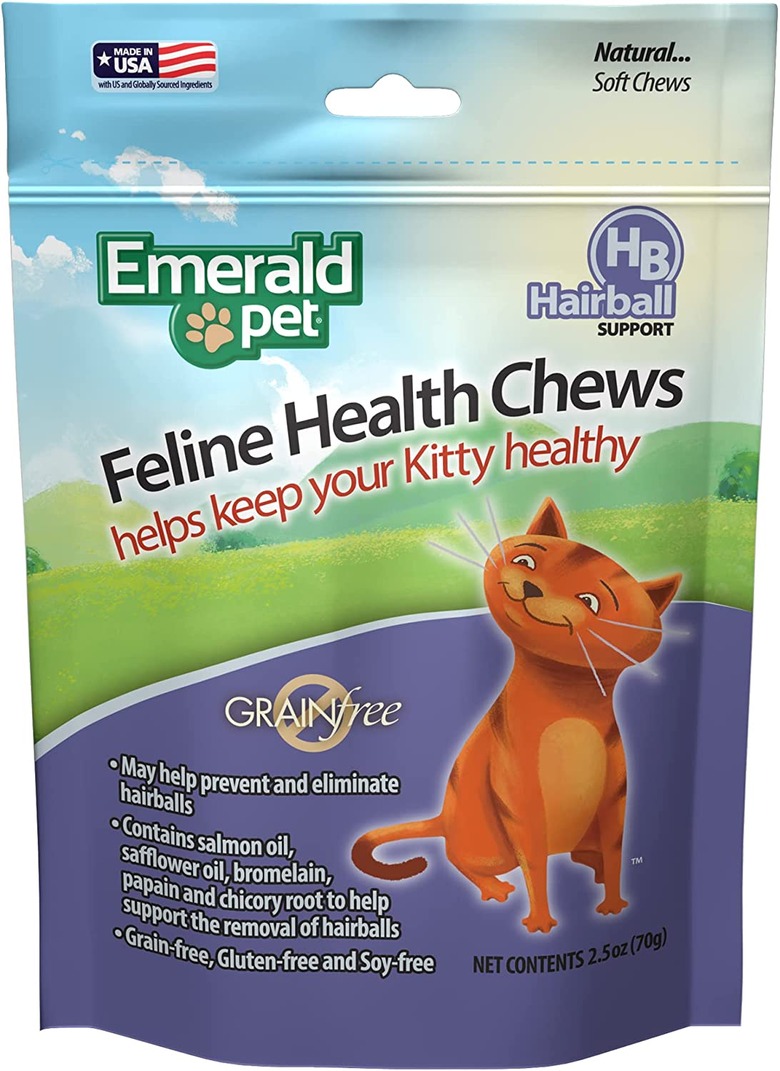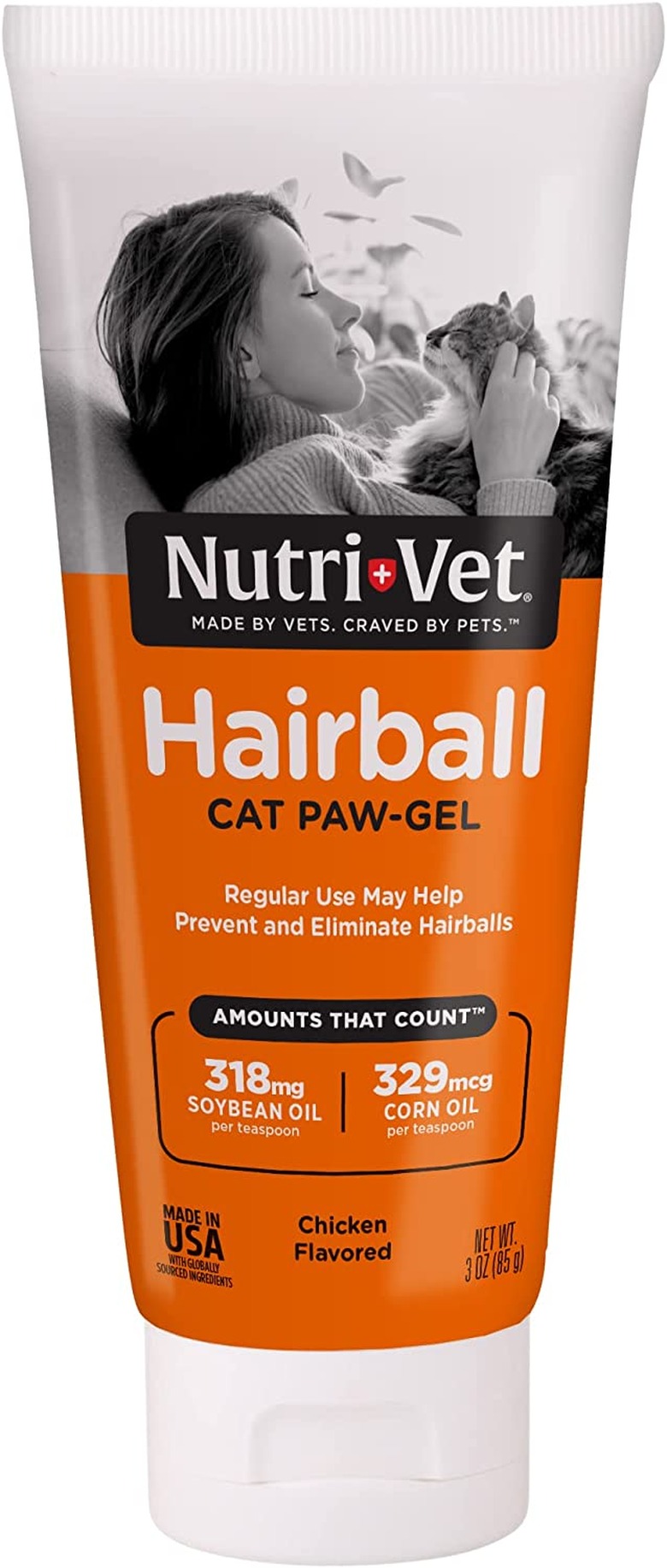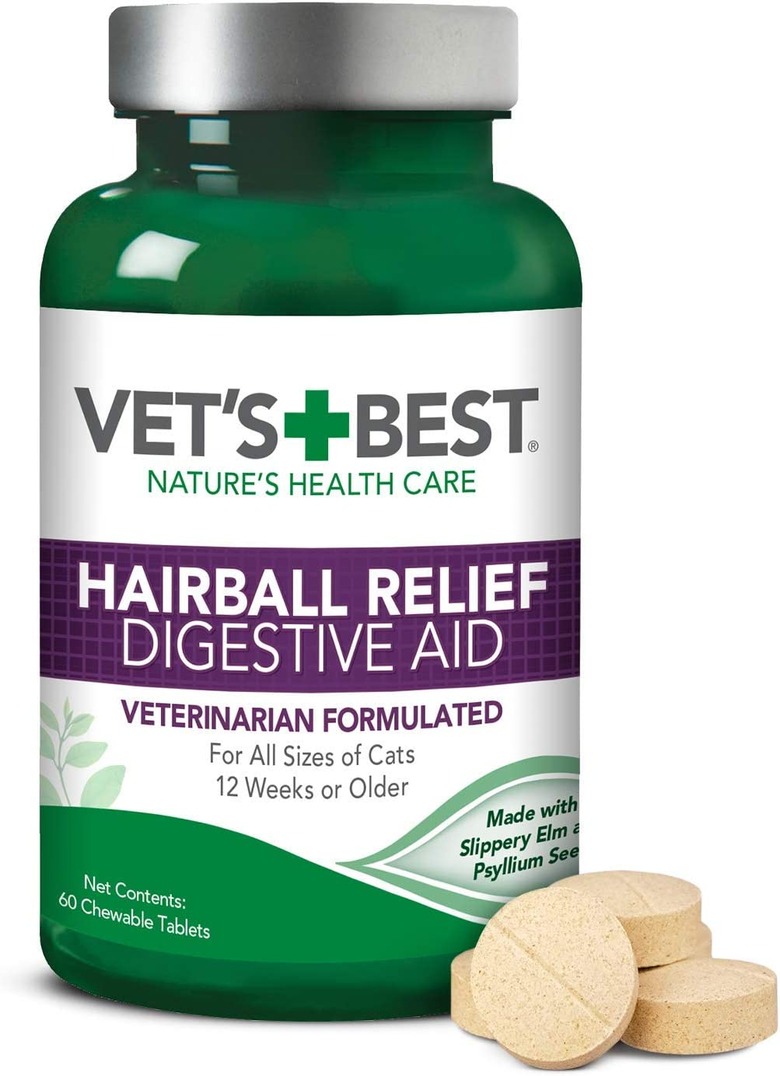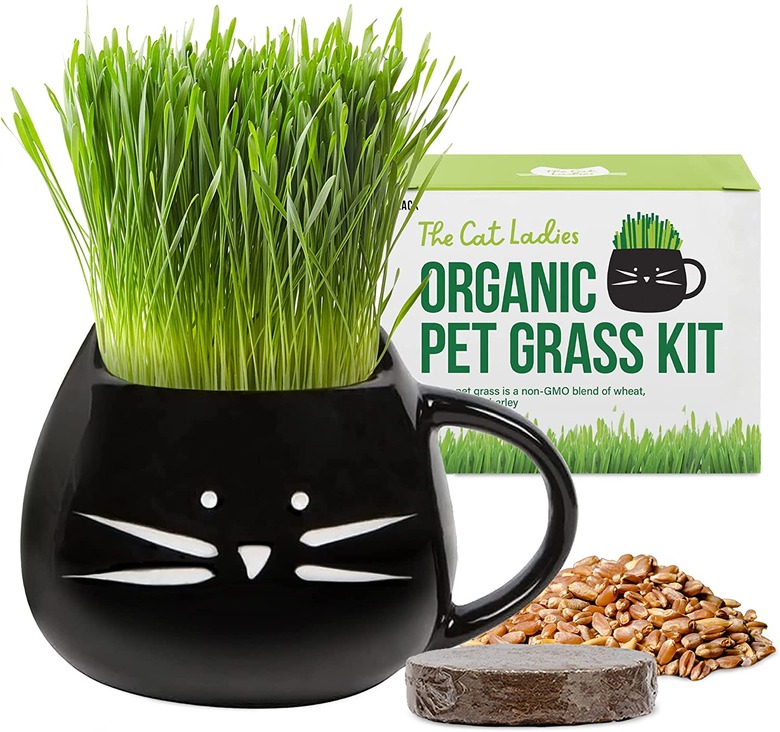Best Cat Hairball Treatments 2023: 7 Products To Stop The Hacking
We may receive a commission on purchases made from links.
Cats are known for being fastidious groomers, always licking away at their fur to keep themselves and their immediate surroundings as clean and healthy as possible. With all of that grooming, however, can come an unfortunate side effect—hairballs. You may have seen or heard your cat hacking up a ball of wet fur already, and it's a completely normal thing when it happens every now and then. If your cat is coughing up hairballs excessively, or if the act of passing a hairball is causing them discomfort or harm, it could be a huge relief for both of you to introduce a hairball treatment into their regular dietary routine. There are a number of remedies out there in a wide array of formulas, from gels to chews, as well as small additions you can make around the house, like adding a planter with cat grass for them to chew on.
What to consider when purchasing hairball treatments for cats
What to consider when purchasing hairball treatments for cats
Formula: As with any addition to anyone's diet, finding the right formula can make all the difference in achieving long-term goals. Cat hairball remedies are usually offered as a gel formula or in soft chewable treats, although sometimes dry kibble foods are formulated to prevent hairballs over time. If you can find treats in a flavor and consistency that your cat likes, then adding this as a preventative is fairly easy for most cats. Gel formulas work to lubricate, covering fur that your cat has swallowed and making it less uncomfortable to pass back up.
Frequency: Passing hairballs is completely normal for cats, and generally speaking, about a hairball a week is no real cause for concern, especially if you have a long-haired cat in your home, like Persians or Maine Coons. Hairballs that become too large, however, can lead to intestinal blockages in the digestive tract and may even present a choking hazard in some cases, so if your cat passes hairballs regularly, it's best to offer assistance in the form of a remedy. Helping your cats groom themselves by brushing their hair on a regular basis and introducing hairball control cat food may also reduce the number of hairballs your cat passes.
Flavor: Obviously, it's much harder to make lifestyle changes through the diet if those changes don't taste good, so finding the right flavor for your cat will ensure that hairball formation is either prevented or made easier to pass through the system. Common hairball treatment flavors for cats include tuna and chicken, although sometimes a sweeter flavor is more enticing to a cat, like maple, malt, or catnip.
The best overall hairball treatment
The best overall hairball treatment
If you're looking for a cat hairball remedy but aren't sure where to start, this gel formula is a great option as it's both effective and beloved by most cats. Available in tuna, maple, and catnip flavors, this hairball treatment is formulated by veterinarians and is safe for consumption in all cats, from kittens to seniors. Most gel formulas contain petrolatum, most commonly known through the brand name Vaseline, and this one is no exception, although it's also made with soybean oil to lubricate, and contains healthy fatty acids, including omega 3, 6, and 9. To administer, just add a dap on your cat's paw and let them lick it off.
The best budget hairball treatment
The best budget hairball treatment
Another gel formula on the list, this one is offered in the lesser-known but widely enjoyed malt flavor. Safe and effective for all cats over the age of four weeks, this option is less than $10 for 4.4 ounces container, making it an affordable option as a little goes a long way. Like other gels, this makes the hairball-passing process a little bit less uncomfortable by lubricating the hair and keeping the digestive system lubricated enough to possibly prevent hairballs from forming in the first place. This is a great pick for any cat who experiences constipation, dry cough, or even excessive vomiting due to hairball formation.
The best hairball treatment chews
The best hairball treatment chews
If gels aren't your cat's thing, you can always brighten their day while enhancing their wellness by offering remedies for hairballs in the form of a tasty treat. Unlike gels, these soft chews contain no petroleum jelly or mineral oil, and will not have a laxative effect at all, but instead uses the fiber naturally found in psyllium husks to promote healthy gastrointestinal function. Additionally, the omega fatty acids used within this formula promote healthy skin, coat, and digestion. The treats contain cranberry to encourage a healthy urinary tract as well. These chews are chicken flavored and should be given twice daily for the best results.
The best grain-free hairball treatment
The best grain-free hairball treatment
If you're looking for a tiny chew to use as hairball prevention for a cat with food sensitivities, this grain-free option is a great one to consider. Formulated without soy, gluten, or grains, these treats utilize salmon oil and safflower oil to promote lubrication in the digestive system and to make passing hairballs easier, if not prevent them from building up entirely. It should be noted that these chews do contain bromelain, which is not recommended for anyone with kidney disease, so if your cat suffers from this it is best to consult your veterinarian before adding these, or any supplements, to their diet. One serving of these treats is four chews.
The best hairball treatment for picky eaters
The best hairball treatment for picky eaters
When shopping for a gel, it's hard to go wrong with a chicken-flavored option, especially one you can allow your cat to lick up at their own leisure. This hairball control formula is created with vegetable oil and soybean oil to promote a lubricated GI tract and to make the passing of hairballs that have formed easier, whichever way they may go. This formula is safe to use once or even twice daily and should be applied to a surface that your cat will lick, like their paw. Additionally, the acids found within the oils used (like linoleic acid and oleic acid) encourage healthy skin function, which can make grooming easier for your feline friend. It also comes in salmon flavor if your cat prefers that option to chicken.
The best supplement hairball treatment
The best supplement hairball treatment
Adding supplements to a cat's existing diet can be a great way to make healthy changes to their lives over the long term. These supplements contain a blend of herbs like psyllium husk, marshmallow root, and slippery elm bark to promote healthy digestion, as well as probiotic enzymes to support gut health. This chicken-flavored tablet should be given twice daily, and you can break the tablet up into smaller pieces if it's too big for your cat to chew.
The best organic hairball treatment
The best organic hairball treatment
If you don't want a gel formula hairball treatment or even treats or chewy supplements to help with your cat's hairballs, you can always go the natural route by adding cat grass to your home. Cat grass is not only a great way to add fiber to your cat's diet the same way they would out in the wild but also enriches their lives by meeting the primal need cats have to chew. Each one of these kits is easy to grow and contains a small soil pod as well as a packet of organic seeds in a grass blend made up of barley, wheatgrass, oat, and rye. To use, simply water the seeds until they sprout, which usually occurs in just a few days, and allow your cat to chew at their leisure, re-seeding as needed.
